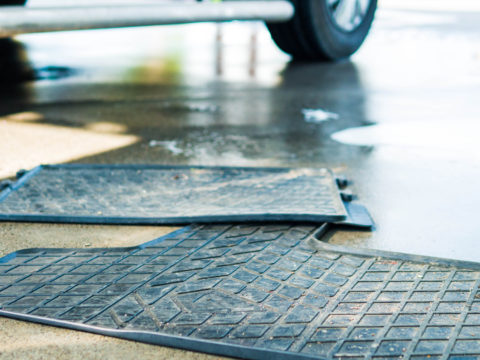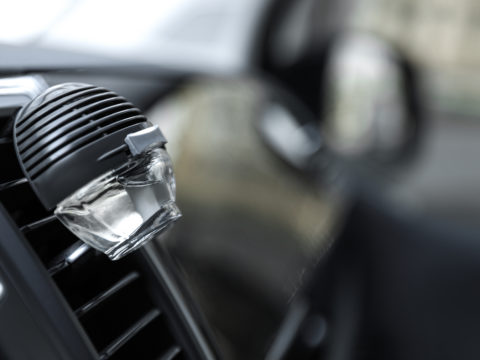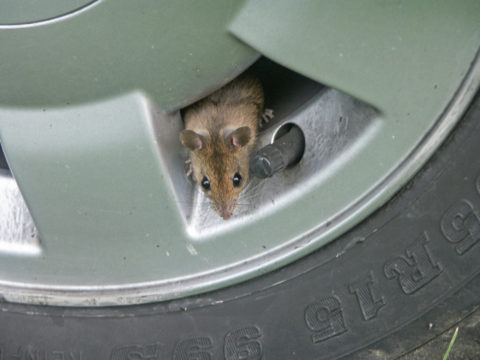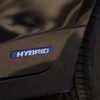Car maintenance can be expensive, with all manner of products for cleaning, waxing, and polishing. Given that, many owners look to DIY cleaning agents as cost-effective alternatives. An ordinary household cleaner, vinegar is a surprisingly effective car-cleaning solution, but its safety on car paint is debated. This article will take a closer look at the potential benefits and challenges of using vinegar to clean car paint and look at less risky options.
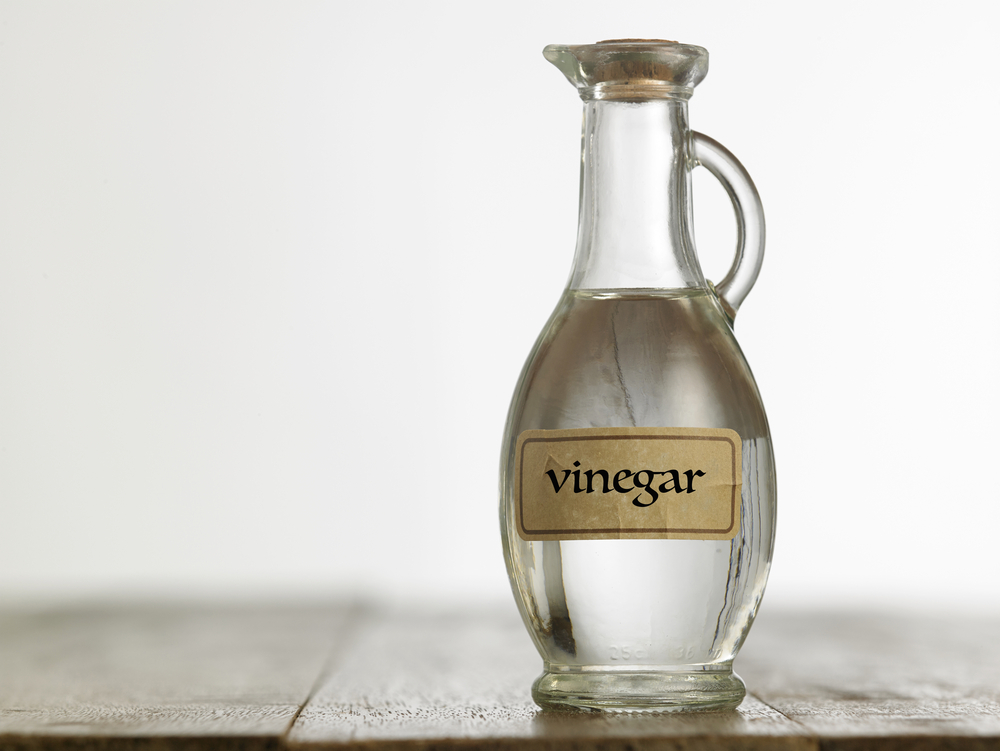
Contents
Using Vinegar To Clean a Car
Car owners are always looking for effective and affordable cleaning solutions. One option that has gained popularity as a cleaning agent is vinegar. But can you really use vinegar to clean your car?
Does Vinegar Harm Car Paint?
The big question is, can vinegar damage your car paint? Unfortunately, yes, it does have the potential to be harmful for your vehicle. It is a mild acid, and while it can effectively remove dirt, grime, and water spots from various surfaces, its acidic nature is a big problem for car paint.
How Does Vinegar Affect Car Paint?
There are various ways in which vinegar can harm the car paint. Firstly, its acidity can cause damage to the clear coat, which is the protective layer on top of the paint. Prolonged exposure to vinegar can make the clear coat vulnerable to damage from environmental factors.
Moreover, vinegar has a drying effect, meaning it can strip away the wax and sealant on the car’s paint. That can cause the paint to lose its luster and become dull.
If vinegar is not correctly diluted or left on the car’s surface for an extended period, it can lead to etching. This is when the acid eats away at the paint’s surface, causing small pits or marks that can be challenging to remove.
Disadvantages of Vinegar in Cleaning Car Exterior
Vinegar is often used for household cleaning, but it may not be optimal when washing your car’s outside. Here are some potential drawbacks to using vinegar for cleaning the exterior of your vehicle:
Potential Damage to Paint and Clear Coat
Although diluted vinegar solutions are generally safe for most surfaces, they can still cause harm if misused or left on the surface for too long.
The acetic acid in vinegar might weaken the clear coat that protects your car’s paint job, leading to dulling or even peeling over time. To avoid this risk, always use a proper pH-balanced automotive soap instead.
Streaks and Residue
Using vinegar as a cleaner may leave streaks and residue on your car’s exterior surfaces. This could make your vehicle look less clean than you intended and require additional effort to remove these marks with another product.
Opting for specialized automotive cleaners will help ensure a streak-free finish without unwanted residues.
Corrosion Risk for Metal Components
The acidic nature of vinegar also poses risks for metal components such as chrome trim or aluminum wheels. Prolonged exposure can lead to corrosion, which weakens the metal and reduces its lifespan.
Use dedicated wheel cleaners and chrome polishes designed specifically for automotive applications to protect your car’s metal parts.
Unpleasant Odor
Finally, vinegar has a strong and distinctive smell that many people find unpleasant. Even though the smell vanishes after drying, it can still be quite off-putting while cleaning. Choosing an automotive cleaner with a more pleasant fragrance will make your car washing experience more enjoyable.
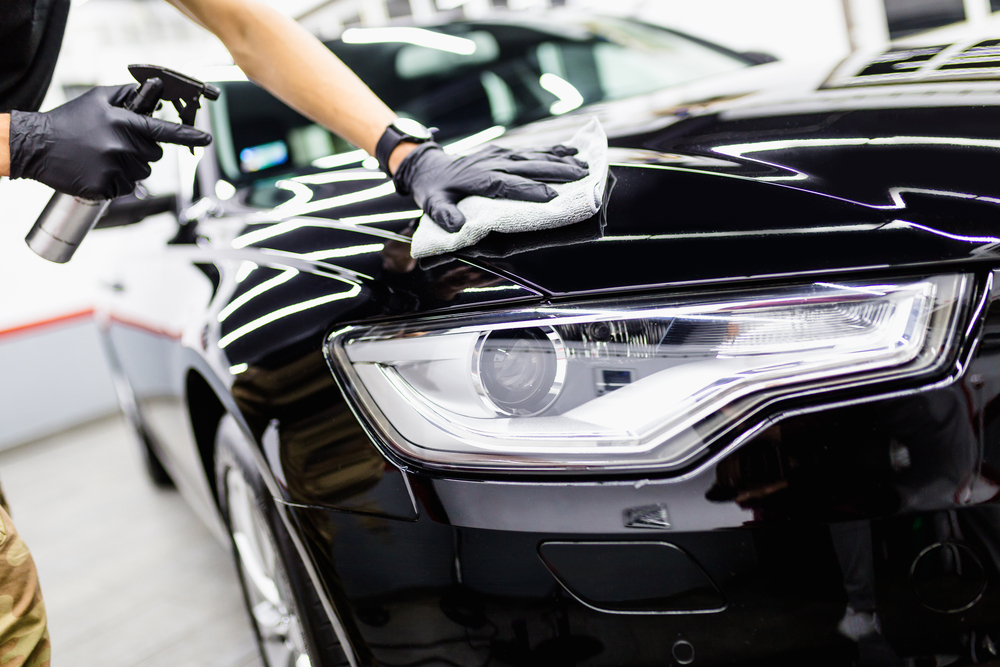
Should You Use Vinegar to Clean the Car Exterior?
Vinegar is a versatile cleaning agent used for household chores, but should you use it on your car’s exterior? The answer largely depends on the type of vinegar and how it is applied.
However, some factors to consider before using vinegar as a cleaner for your car’s exterior include dilution ratio, application method, and materials sensitivity.
Where to Use Vinegar When Cleaning a Car
Vinegar is an affordable and eco-friendly cleaning solution that can be used in various ways for car maintenance. It may not be ideal for cleaning your car’s exterior, but it can still be employed in a few areas.
Glass and Windows
Vinegar works wonders on glass surfaces due to its acidic nature, which helps break down dirt and grime without leaving streaks or residue behind.
Mix equal parts of white distilled vinegar with water in a spray bottle, then apply the solution to your car windows and windshield. Wipe clean using a microfiber cloth or window squeegee for sparkling results.
Removing Stickers and Decals
If you have stubborn stickers or decals on your vehicle that refuse to come off quickly, try using vinegar as an adhesive remover. Soak a cloth in undiluted white vinegar and place it over the sticker for about 15 minutes before gently scraping away with a plastic scraper or an old credit card.
Interior Upholstery Cleaning
Mix vinegar with one part water to create a cleaning solution suitable for fabric upholstery or carpets.
Spray this mixture lightly onto fabric seats or carpets while avoiding soaking them thoroughly. Gently scrub any stains using a soft brush before wiping away excess moisture with clean towels.
Chrome and Metal Surfaces
Vinegar can effectively clean chrome or metal surfaces on your vehicle, such as wheels or trim pieces. Mix equal parts of white distilled vinegar with water in a spray bottle and apply it to the desired area.
Alternative Cleaning Agents
If you are concerned about the potential damage vinegar can cause to your car’s paint, several alternative cleaning agents can keep your vehicle looking its best. These alternatives are designed for automotive use and offer a safer option for maintaining your car’s exterior.
Car Wash Soap
Car wash soap is formulated to safely clean dirt and grime from your vehicle without damaging the paint or clear coat. It typically has a neutral pH level, making it gentle on surfaces while providing adequate cleaning power.
Mix the car wash soap with water as instructed, then apply a soft sponge or microfiber cloth for effective cleaning.
Waterless Car Wash Products
Waterless car wash products provide an excellent alternative for those who want an eco-friendly option or have limited access to water.
These cleaners come in spray form and contain lubricants that help lift dirt away from the surface without scratching the paint. Spray onto a section of your vehicle, then wipe off with a clean microfiber towel.
Clay Bar Kit
A clay bar kit is another safe method for removing contaminants like tree sap, bird droppings, and brake dust from your car’s exterior surfaces without causing harm to the paint. The clay bar gently lifts these contaminants from the surface, leaving your paint smooth and clean.

